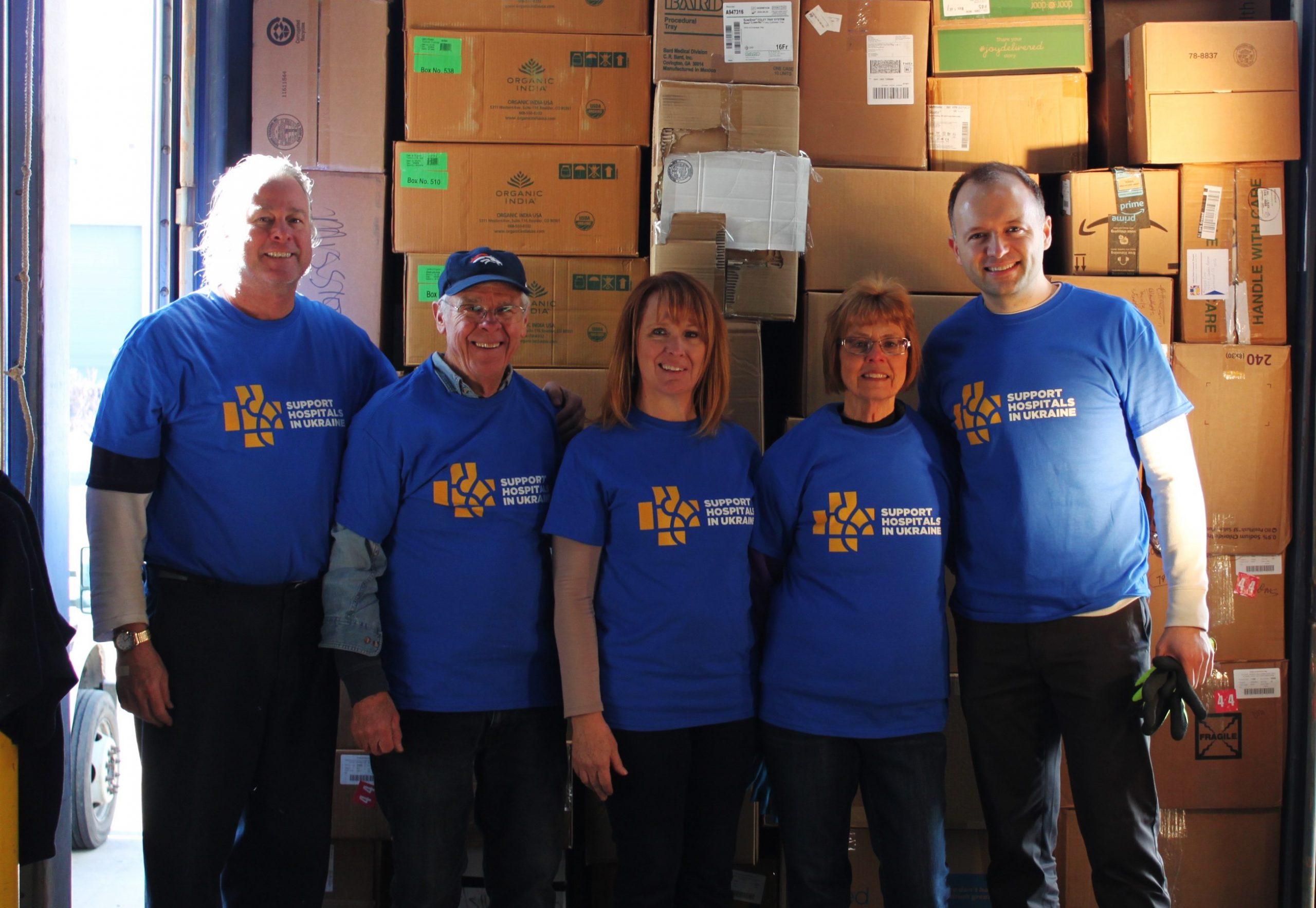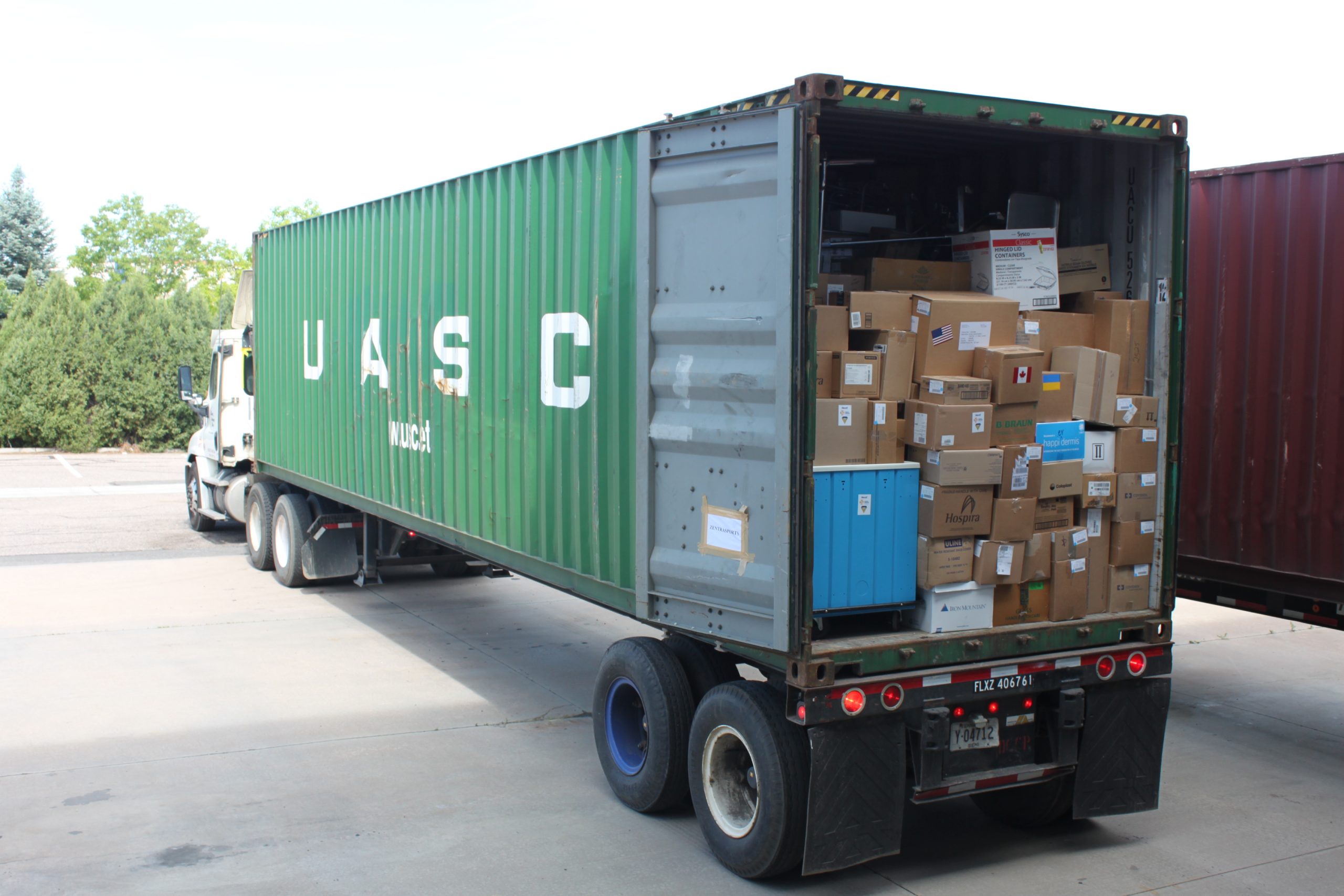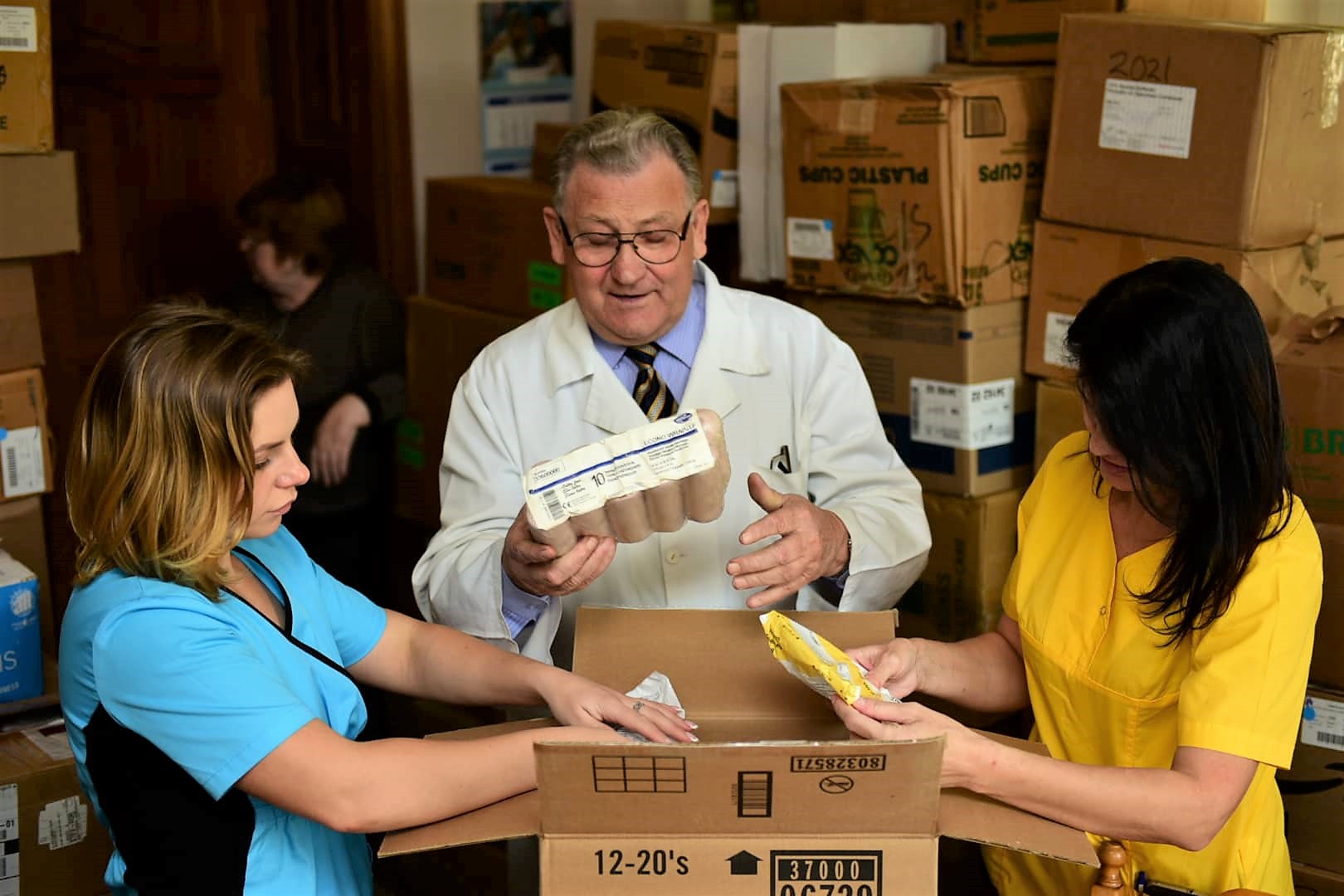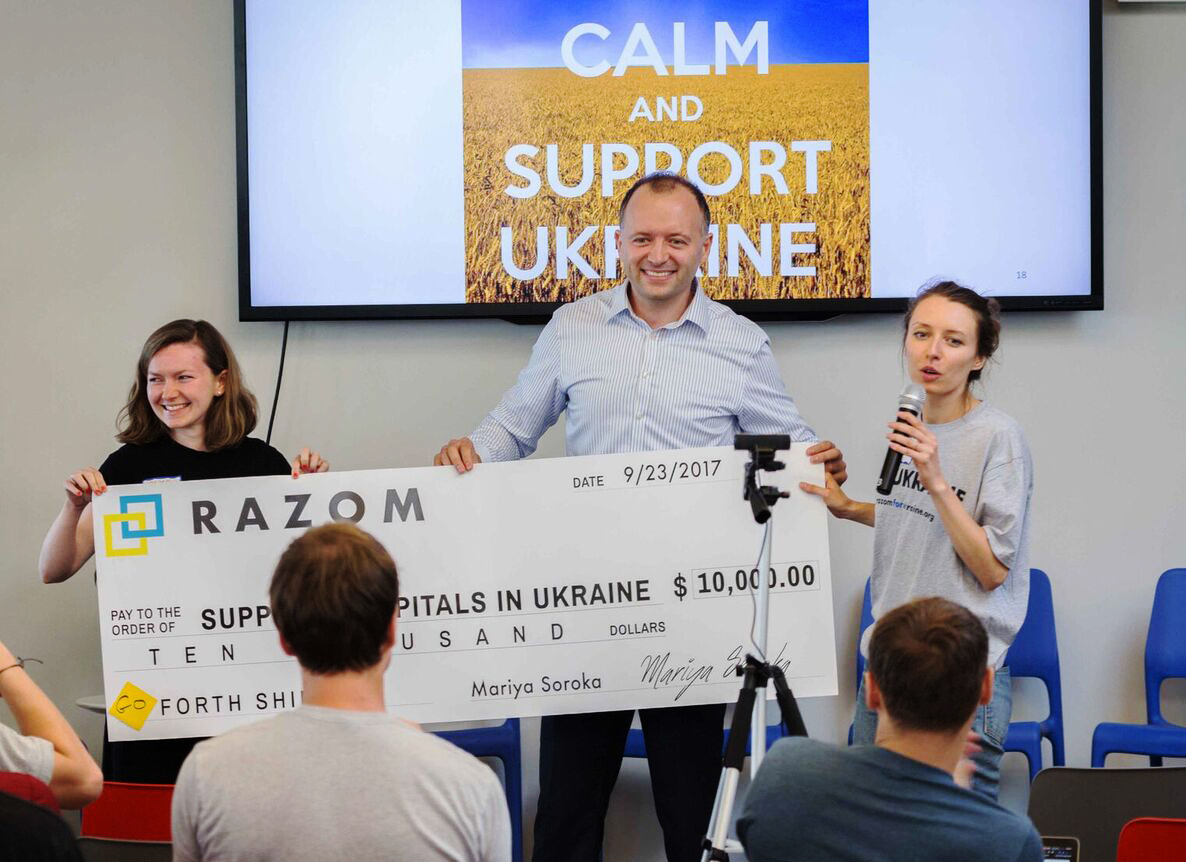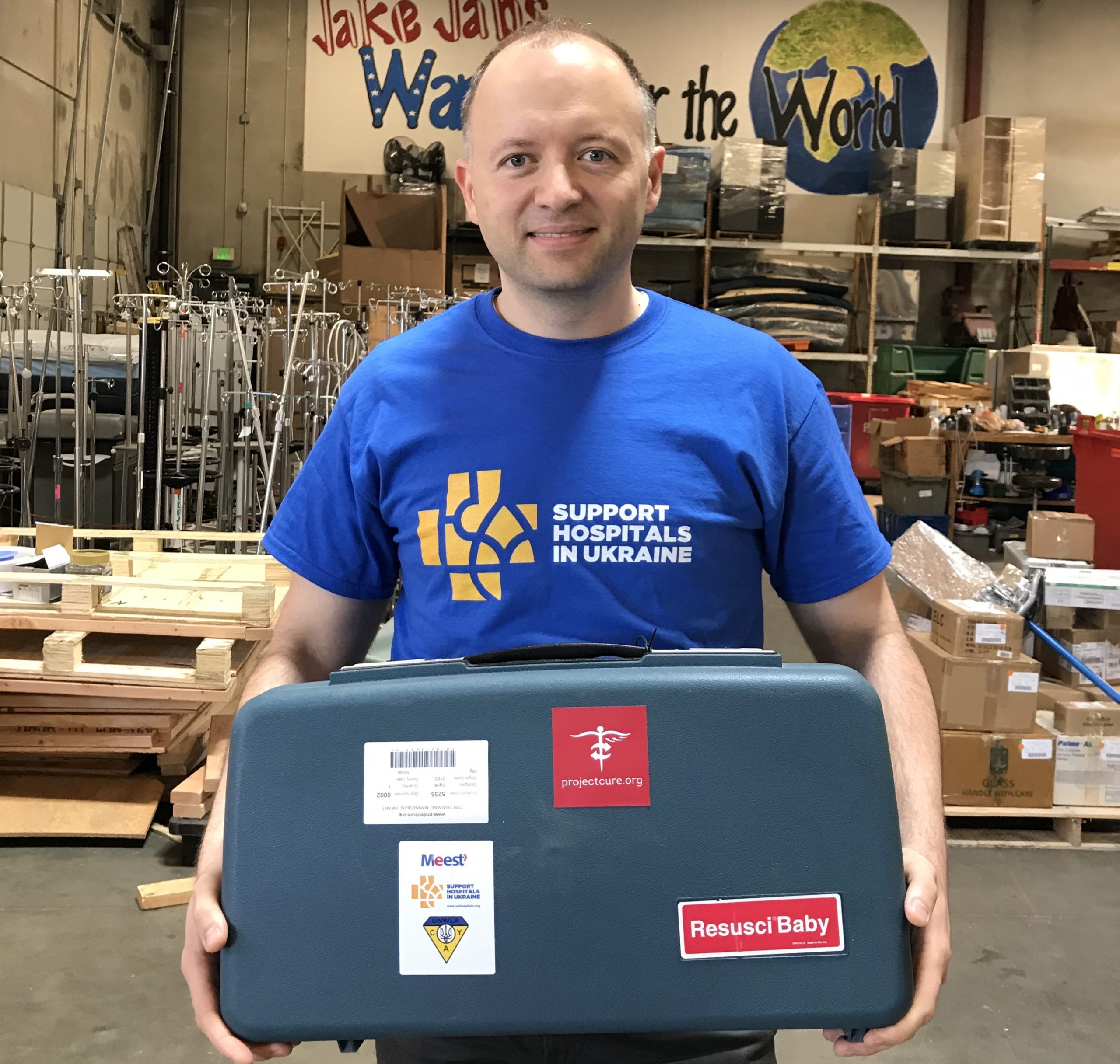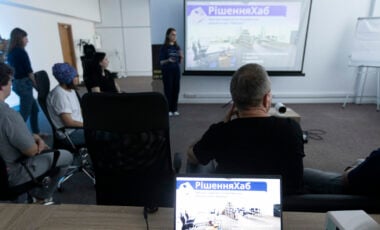Volunteer of thousands of lives. How Ukrainians transport millions of dollars in humanitarian medical equipment across the ocean
And not going to stop. The next seventh container of humanitarian cargo will leave the United States for Ukraine in 2020. We asked the founder and manager of the international humanitarian project "Support Hospitals in Ukraine" how it becomes possible
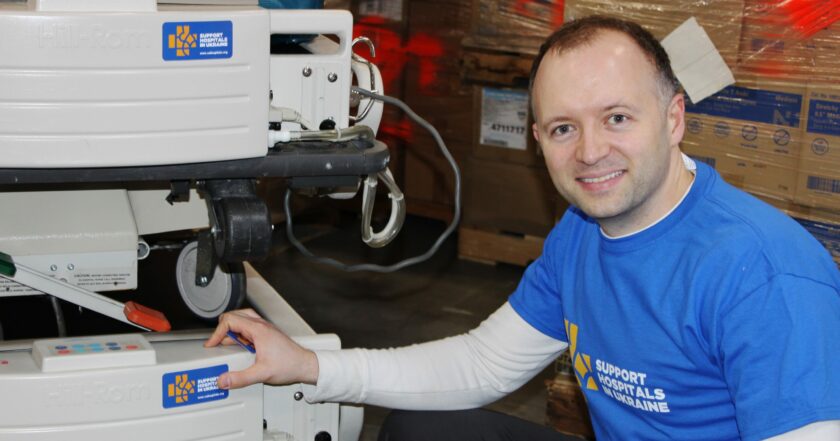
Vitalii Dubil meets me (ed. – Rubryka journalist) at the entrance of an international financial institution in Washington, where he develops relations with financial donors and other partners of the institution. Despite the workload, in the summer of 2014, he undertook another sideline job but entirely volunteer one. His initiative Support Hospitals in Ukraine delivers medical equipment from the United States to Ukrainian hospitals. For the period from 2014 to 2019, the organization has delivered six containers with equipment worth $3.5 million in total. The project aims to help Ukrainian hospitals that lack modern medical equipment. Transporting equipment becomes possible through charitable contributions and cooperation with a network of partners in the United States, Canada, and Ukraine. The project's unique character is in its fantastic efficiency: 1 dollar of donations provides transportation of helpful medical cargo for 25-27 dollars to Ukraine.
How it all began
Vitalii says that the idea to create the initiative came up when the war in eastern Ukraine began and they wanted to help the Motherland: "I am from Dnipro, and my entire family lives in Dnipro. All Dnipro residents as citizens of other cities helped hospitals a lot, but their resources and access to modern medical equipment were limited.
I vividly remember when the war in eastern Ukraine began, my friend Pavlo Fedorenko and I started thinking over lunch in the middle of the working week on how best to help our country. We came to the understanding that medical assistance will be most in need.
When we started, we had no experience in the medical field at all. We had never worked in this industry. There had been no contacts, no money, no experience in transporting medical equipment or any other cargo across the ocean, no contacts with suppliers, and government services in Ukraine. In fact, we started from scratch and had a great desire to help our country."
They spent the first months searching for contacts and gathering any information that might be useful. Next, Vitalii continues talking about the difficult early days of the project and the first steps:
"After a while, we met Jenny Martin, an American volunteer with the experience of sending medical supplies. We decided to join forces. We had another problem, perhaps, the most important one. It was the lack of financial resources. The first container was actually funded from our own pockets. We sent the first shipment, and then things started happening. As of now, we have delivered 6 containers worth $3.5 million. We delivered the last two containers in the fall of 2019. It was a medical cargo for the Okhmatdyt hospital in Lviv, Irpin Military Hospital of the Ministry of Defense of Ukraine (Kyiv region), and two hospitals in Zhytomyr."
How does the initiative work?
The initiative delivers medical cargo to Ukraine. It comprises 2 parts: large capital equipment (usually a third of the container). It can be X-rays, intensive care beds, special medical equipment, and consumables as dressing supplies, special kits for surgeries, etc.
Support Hospitals in Ukraine works with one provider, Project CURE, headquartered in the suburbs of Denver, Colorado. It is a non-profit organization that collects surplus or used equipment from hospitals and manufacturers in the United States and then distributes it to various countries. Before sending the equipment, it undergoes a special inspection to confirm its working condition and compliance with all standards. In addition, the initiative pays the supplier for adding special transformers and adapters to power supply systems in Ukraine, which ensures the work of the equipment after delivery.
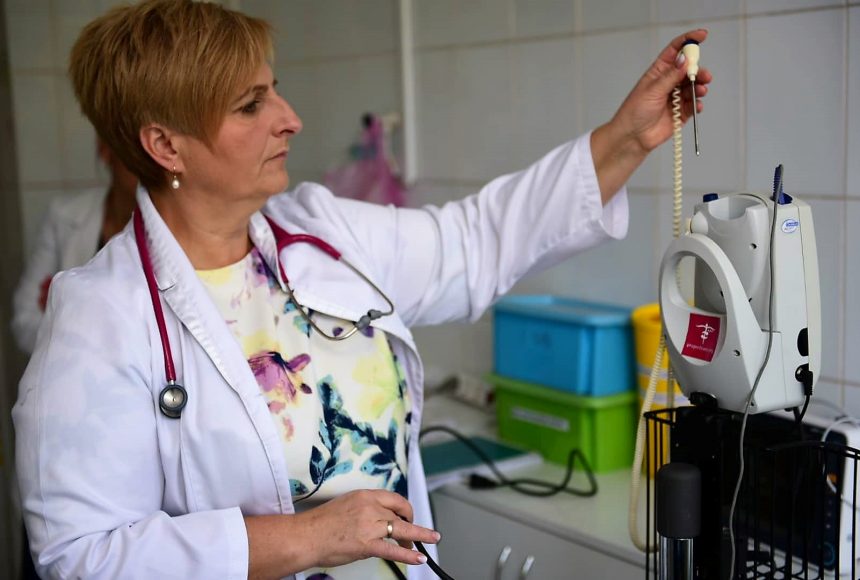

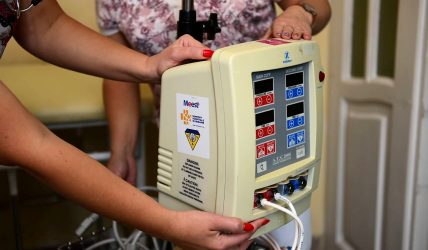
Vitalii clarifies, "Every hospital in Ukraine must pass a special inspection to become a potential recipient of our cargo. To do this, we send our volunteers to Ukraine. The hospital must meet three requirements:
- there should be a need for modern medical equipment,
- doctors who can use our equipment,
- infrastructure, and a willingness to maintain modern equipment.
After the inspection, we already know what the departments are, the beds, and the needs of the hospital."
So, when preparations begin for shipping a new humanitarian consignment, the initiative comes to the supplier with certain requests based on the needs of specific hospitals. We form the cargo under specific orders of hospitals.
Vitaliy adds, "As I said, we delivered our last cargo to Ukraine in the fall of 2019. In early October, we delivered the cargo to Okhmatdyt [in Lviv – Ed.], then to Irpin and Zhytomyr. Because of the COVID-19 virus spreading in Ukraine, we are actively working with our partners on the next shipment. It will be Odesa. We currently have 3 large local hospitals in work. Unfortunately, the situation with the coronavirus has perplexed our work. We have the money and the support of local partners in Ukraine with all the permits. But we can not get the cargo. It is a contradictory situation, but the reality today is that local suppliers, who previously sent excess medical cargo to other countries, now focus 100% of their resources on helping locals [in the US – Ed.] So, the next cargo, which we planned to send to Ukraine in early spring, will be postponed to the summer-autumn of this year."
In general, according to Vitalii, the preparation period for sending cargo begins in 3-6 months prior to fundraising. "We used to raise money through two channels, fundraising, i.e. raising small amounts, which gave up to 55% of the required financial resources. These are small donations of 25-50-100 dollars, usually from friends and acquaintances. And the rest was more or less significant amounts for us. It could be 3-5-10 thousand dollars, but still not enough for the whole container. So when starting preparation to send the container, we needed targeted fundraising and, hence, time to prepare. In addition, it is necessary to take into account the agreement and negotiations with hospitals on the medical equipment they need. It is another 1-2 months, and there is also the time for delivery to Ukraine, customs clearance, and distribution in Ukraine. So the timeline for each container could be 6-12 months."
The economy and model of the project are so effective that for 1 dollar of donations to Ukraine they deliver the consignment for 25-27 dollars of humanitarian medical cargo.
"The medical cargo in the first container cost about $460,000," said Vitalii Dubil, the initiative's founder. "The third was 760 thousand. There we got very cool equipment, an X-ray image intensifier (XRII), various diagnostic equipment, and much more. But the cost of the cargo of one container makes somewhere 500-600 thousand dollars. 100% of the money we raise goes to the operating costs of our humanitarian project and $0 to administrative or any other expenses. We have no office, no license for state registration of a non-profit organization, no salaries. We are a 100% effective initiative."
An important factor in the initiative's success is cooperation with organizations supporting the work of the humanitarian project. According to Vitalii, they made the following notable results possible by the support of many donors and partner organizations:
"As our wise people say, "Разом і батька легше бити" ["Beating father together is easier" meaning if you do something together, it's much easier to succeed – TN] [smiling – ed.]. Of course, we wouldn't have achieved our results without the support of many like-minded people. We actively cooperate with Ukrainian organizations in the United States and Canada, which have also been our largest donors. In Ukraine, we work with local NGOs and local authorities providing valuable assistance, ranging from help on hospital inspections to customs clearance during cargo delivery and distribution of medical equipment to final recipients.
I would like to single out our individual patrons who have supported and continue to support us with their donations. These are the people who believed in us, friends, acquaintances, relatives, or people who just learned about our work from the Internet or TV stories. For us, support is incredibly important. First, such transfers, usually up to $100, initially provided up to 75% of the needed amount to ship a single container. And most importantly, we feel support and understanding that our work is needed. That's why we value every dollar we receive from our patrons to this day, and we pay most of the attention to minimizing costs and increasing efficiency."
Working on such a comprehensive international project would also be impossible without a team of like-minded people, Vitaliy Dubil says. "It's a genuine pleasure to work with people who have become close friends and share a common goal. Often working on each shipment takes up a lot of free time and resources, but everyone is working on a common goal, to help Ukraine."

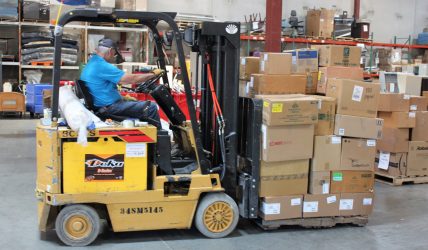
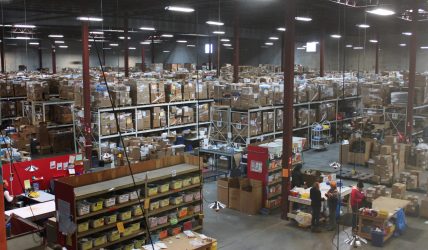
How to get help?
The humanitarian project Support Hospitals in Ukraine started from Dnipro, where they needed modern medical equipment the most because of the wounded soldiers and civilians from eastern Ukraine constantly brought to the city hospitals. Later, the initiative spread to Kyiv, Zaporizhia, Lviv, Zhytomyr, and Irpin.
The humanitarian project works exclusively with non-profit, i.e. state or municipal medical institutions. They transfer all medical supplies to hospitals free of charge. So, taking into account the difficult situation with medical institutions supply in Ukraine, there're always many requests for help. But no matter how much you want to help everyone, there're not enough resources:
"Almost every week I receive a letter from the chief physicians and volunteers of the Peace Corps [US government agency that sends volunteers around the world to strengthen peace through volunteer projects – Ed.], a message like "Please help us." But we just can't include all the hospitals in our list of recipients, so I would like to manage the expectations about our work and the opportunity of getting our help."
"Right now, we just don't have enough money to help everyone. We just can't replace a department of the Ministry of Health or another specialized institution. We can't help everyone. So when we work now and choose new hospitals to help, we consult with our partners and those who might support the transportation of the container. We also work under our strategy and priorities for developing medical services in Ukraine we want to support."
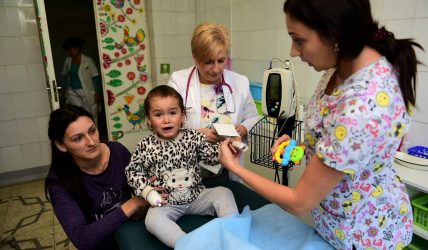

However, if a certain hospital needs help with equipment, Vitalii still advises writing to the initiative:
"I gather all the information and then consult with our partners. However, again, the partners we work with often have a ready list of sponsored hospitals they want to work with.
For example, Razom for Ukraine in New York [a non-profit Ukrainian-American organization promoting Ukrainian culture and traditions in the United States – Ed.], was one of our major financial partners in the first stage of our work. And now one of their key areas is neurosurgery. Thus, a part of the medical cargo in our 4th container was for neurosurgery. I think soon we will send equipment just for their requests and needs.
The Ukrainian National Women's League of America sponsored a container for two children's hospitals. We delivered the cargo in the fall of 2019. The "Friends of Ukraine Defence Forces" Fund (Toronto) and United Help Ukraine acted as our financial partners for the delivery of medical supplies to institutions caring for the military and veterans, one of their priorities. So, we will join forces with other Ukrainian organizations to achieve a synergy effect."
Can you scale the initiative?
There are organizations similar to the Support Hospitals in Ukraine initiative round the world, but they differ in its scale. Vitalii Dubil says, "Our supplier operates all over the world. They have operations in Africa, Latin America, Eastern Europe, and Asia. But now we are their biggest partner."
The more so, the founder of the initiative indicates that Support Hospitals in Ukraine is an example or even a model for similar initiatives, for example, in Georgia and Nigeria.
Vitalii stresses that it's a project that does not involve any state help at all. "In fact, we do not cooperate organizationally with the state of Ukraine, as we work directly with hospitals. Only in certain aspects, the state helps. For example, a few months ago we signed a memorandum on understanding and cooperation with the Embassy of Ukraine in the United States. But the Ministry of Health of Ukraine may not even know about us. We bypass the entire state bureaucracy, and it's most likely even better for us."
Vitalii Dubil concluded our conversation with motivating words:
"Kennedy, the 35th President of the United States, once said: Ask not what your country can do for you, ask what you can do for your country. Over the last six years, Ukrainians have formed a powerful volunteer movement, both in Ukraine and abroad. In particular, in North America, the United States, and Canada, there is a network of active organizations and initiatives that are doing an incredible job of helping Ukraine, and I am glad that our humanitarian project is part of this movement. Despite the distance of thousands of kilometers from our homeland, we are with her at heart, and we continue to help its development."




